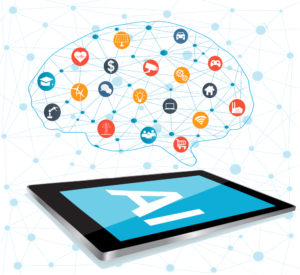What Is AI?
Artificial Intelligence (AI) utilizes computing mechanisms to perform tasks that assist us in our everyday lives. From social media sites to banking, AI is all around us. Increasingly AI is making its way into the healthcare industry as well, including dermatology.
How Is AI Intersecting With Dermatology?
Dermatology relies on accurately diagnosing various skin conditions, especially cancers. Traditionally, the doctor (or clinician) diagnosed the patient via visual inspection, knowledge of patient health history, lifestyle, etc. In this scenario, a diagnosis was made solely on the recommendation of the doctor. However, with the introduction of AI into the field of dermatology, images of skin conditions can be viewed by machines that can recognize abnormalities and diseases.
What Do Patients Think About AI?
In a recent study, researchers from Yale, Harvard, Stanford and others interviewed a group of dermatology patients to discover their thoughts about AI being used in skin cancer screenings. The vast majority (75%) indicated that they would recommend AI to family and friends.
Diagnostic ability/accuracy
Regarding patients’ perceptions about AI’s competency to provide accurate and fast diagnoses, opinions varied. Sixty percent felt that AI increased diagnostic speed. When it came to accuracy, sixty-nine percent believed AI offered a more accurate diagnosis. At the same time, eighty-five attributed a less precise diagnosis to AI. When a diagnostic conflict arose between clinician and AI, sixty-seven percent perceived performing a biopsy was the preferred method to settle the issue.
Health care access
Concerning the issue of barriers to health services, sixty percent of patients felt that AI could increase health care access.
Confidence in the technology
Although many patients expressed confidence in AI, as evidenced by the seventy-five percent who would recommend it to others, participants indicated that the doctor/patient relationship is still needed. Additionally, forty percent set forth that the most significant risk of AI could be patient anxiety.
Privacy Concerns
Researchers noted potential privacy concerns regarding consent to use AI technology related to racial, economic, and health-vulnerable populations.
Sharing Of Information
Those with medical issues or difficulty obtaining health coverage may be hesitant to provide health information for fear of backlash from insurance companies. Furthermore, healthy individuals may not see the benefit of sharing their health information. This could diminish the data furnished to AI algorithms.
The Real Deal
Dermatology artificial intelligence apps continue to be produced and integrated into patient care. While some health care providers fear these apps diagnostic competency as a threat to their own skills, others embrace them as tools to provide better accuracy and treatment in their patient care. To learn more about how artificial intelligence is transforming dermatology and patient management, contact me today.
Previous Post Next Post